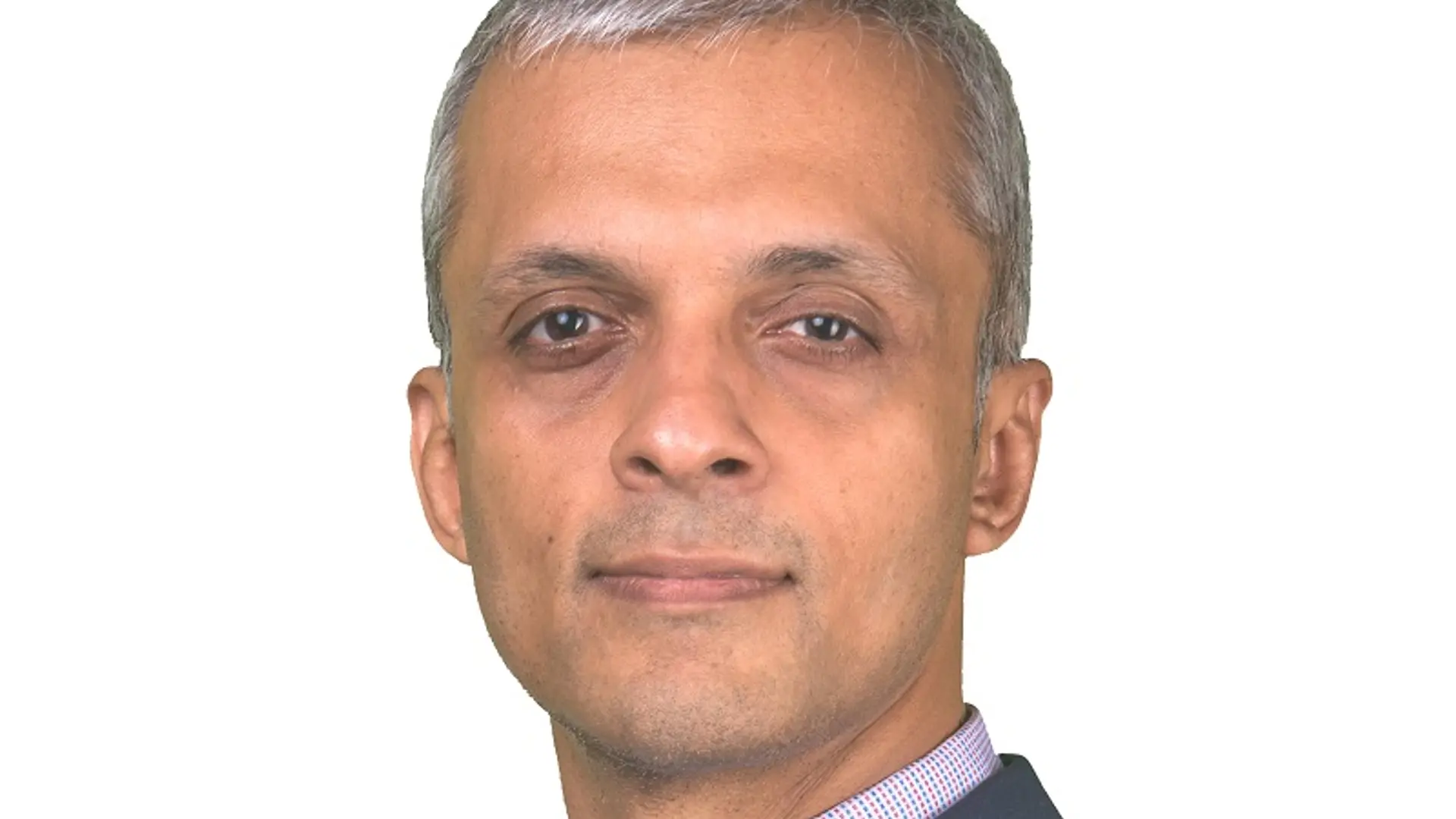Our vision is to enable access to any application on any cloud or any device, safely: VMware VP Pradeep Nair
From modernising applications across multi-cloud environments to providing security solutions, Pradeep Nair of VMware shares how the company scaled up enterprises and helped them secure networks during the pandemic.
Cloud computing and virtualisation firm VMware has been seeing an increased demand for its security and app modernisation services amidst the COVID-19 pandemic.
The $9 billion corporation that provides multi-cloud environment, app modernisation, networking, and security to enterprises connects them through Virtual Cloud Networking and delivers solutions through a product called Digital Workspace.
Over the course of the pandemic, the company has worked with several clients to help them transition to working remotely. At the same time, the company has also increased its focus on the security for data.
In a conversation with , Pradeep Nair, VP, and MD, VMware India, speaks about how they are helping companies in the ecommerce, telco, and BFSI space in scaling up virtually during the COVID-19 situation.
Edited excerpts from the interview:
YourStory(YS): Can you tell us about VMware’s multi-cloud environment?
Pradeep Nair (PN): Most people think of VMware as a virtualisation company, which is very big in data centres. While this is true, we are now providing the digital foundation for enterprise transformation. Today, everything is delivered through applications and you have cloud-native applications. Our vision is to enable access to any application on any cloud or any device, safely.
A lot of our customers now are implementing application modernisation. This is a key priority because a lot of enterprise customers have applications that they've built over time. Usually, these have been built as a monolithic (also legacy) applications, delivered in phases.
Since a lot of our customers are currently facing a rapidly changing environment, we have been helping them convert these monolithic apps into microservices-based Kubernetes orchestrated capabilities, which means an organisation can manage a distributed set of applications and have them working on scale at the same time.
Our focus has been to help developers take advantage of microservices on containers (operating system, platform, framework, runtime and dependencies, packaged as one unit of execution) with our solution VMware Tanzu. With that we have covered VMware Pivotal, which we acquired last year, to deliver the industry’s best enterprise container platform for the multi-cloud world.
YS: Can you explain how the process works for enterprises?
PN: If you are an enterprise customer, you have traditionally delivered an application from a data centre. We started with the virtualised storage network and then we put a layer of management on top, which gives you automation and self-service. These components are the building blocks of what we call the private cloud.
So, virtualise, storage, network compute, and management are what we call the VMware Cloud Foundation.
Once this building block is in place, one can make their data centre a private cloud. We have made it possible to take this private cloud or the application that was running on the private cloud to run on any platform on the public cloud without any friction.
Today, we have become the disruptors. You can manage the enterprise with purpose-built hardware, which was previously very difficult to troubleshoot. Earlier, the legacy hardware was complex, consumed a lot of carbon, and a lot of power as well.
Our technology is also reducing costs, complexity, as well as carbon. Today, people are looking at a user-friendly technology. Enterprises want a functional application and the user experience is critical.
YS: With user experience, does one have to focus on security too?
PN: While we’re making these applications easy to use, one cannot compromise on the security when applications are accessed remotely. We have looked at two things — provide simple experience and enterprise-grade security.
With our Digital Workspace, it is easy to have a real good onboarding experience.
In an enterprise, VMware can enable people to work from home in 18 minutes. The organisation can set up employee’s choice of applications and the tech can verify their identity.It doesn’t matter what your device is - we give you that same consumer experience with enterprise-grade security, which brings us to our next offering — providing security.
If you look at any enterprise company today, you probably have 40-50 applications for security, firewalls, for the endpoints, for the antivirus, and managing all of them adds complexity and requires additional resources.
VMware can build security into the infrastructure that you are already running.
We acquired a company called Carbon Black last year. So, we’ve been in security but mostly on the server networks.
So now, we are in two new spaces – app modernisation and security.
To sum it up, we do these five things - we modernise applications, we run and manage them across multi-cloud environments, we connect them through Virtual Cloud Networking, and deliver them through Digital Workplace. At the same time, we secure them through these unique intrinsic security portfolios.
YS: How did you manage the COVID-19 lockdown?
PN: When the lockdown was implemented, a lot of services like mobile recharge, etc., shifted online, and the demand went up by almost five to six times. With one of our telco customer, we made it possible to scale as software.
Earlier, a sudden increase in demand could lead to an outage. But with the VM Cloud Foundation, the network can scale up to peak in demand. We set up a platform and enterprises didn’t need any intervention from us. They could do it all by themselves.
Earlier, one of the large bank in India used to run systems at the bank branch level. If there was a problem with the software at a bank branch, they had to wait until somebody went there to fix it. But now, we have made it possible to deliver a virtual branch to each location. As long as one has the link to the data centre, everything can be done centrally.
So, we went from having a physical branch to running a virtual bank with one consistent experience across all of their branches.
The idea that we can do it virtually and abstract the complexity into the software is what is being appreciated.
VK: How complex is the world of tech getting amidst COVID-19?
PN: In a COVID world, we all had what we call business continuity planning. In these scheme of things, people are getting used to the idea that they might not have access to a data centre.
Companies have to suddenly move an application running in their own data centre to a public cloud.
They have to also think of making their people productive and how they manage all those tools running in different environments. Even IT teams started having doubts if the same tools be used on the same console.
Now that's the unique value that VMware offers today. We are making it easy for you to manage with pretty much the same skills and capabilities that you've grown up with in your company.

Pradeep Nair, MD of VMWare India
YS: Can you tell us about the new partner programme announced this January?
PN: At VMware, we are looking at the best ways to support partners across the country to ensure they have the right skills to provide the strategic counsel that customers are looking for.
Designed in collaboration with our partners, VMware Partner Connect aligns with partner business models so they can optimise their profitability. The programme also makes it simpler to recognise and reward our partners for their commitment to VMware.
Partner Connect combines our expertise with exceptional partner capabilities to help customer digital transformation projects maximise their potential. Across India, IT decision makers are challenging partners to move faster in order to realise growth ambitions and address heightened end-user demands.
When the lockdown began, we were the first to respond, as many companies wanted to switch overnight and needed instant scaling. With access and manpower on hold, people had very less time to take decisions. It had a certain sense of risk and uncertainty to it because the overriding objective for the enterprise at that time was to get the function available.
Our focus was speed and agility and setting up capabilities for customers with their employees working from their home networks. Some of these employees were accessing tools and information from data centres that could be only accessed from their devices earlier. So, it opens up vulnerabilities that you hadn't thought of, but we make it available.
Since we have been through this unprecedented change, we are ready for the phase we're going through right now. Initially it was all about enabling remote work, then came in intrinsic security, and the other thing is moving to the public cloud because the data set is not accessible in the real world at any time. People have gone through this new normal transition and that is a phase that we are in.
Edited by Megha Reddy




